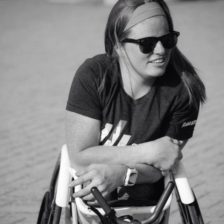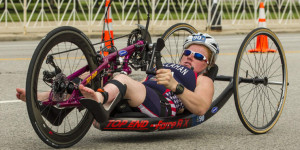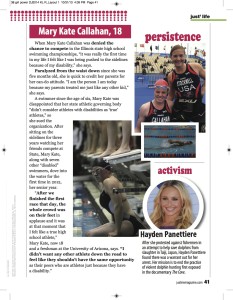Click here to view full article.
What role do you see yourself filling as a pro athlete?
To have a voice is one of the most powerful things you can do: Stand up for yourself, stand up for your community. I try as much as possible to integrate myself with able-bodied athletes, and I think that’s what we’ll see more disabled athletes doing. You still have the Olympics and the Paralympics, but I train with an able-bodied running group. I think that’s when you push yourself to be the best you can be.
One of the things I love doing most is going out and speaking to kids and really educating people because knowledge is power. When you give kids the opportunity to ask questions, whether they’re about being in a wheelchair or using a racing chair or the equipment I run in, you’re really just providing knowledge. That’s going to make these kids much more aware, so the next time they do have an encounter with someone who’s a disabled athlete, they’re going to be comfortable around them.
Everyone asks, “What’s your key to success? How have you gotten to this point?” I always say that I really just have fun with it.
Mary Kate’s Advice For Aspiring Disabled Athletes
Callahan credits much of her success to the joy she feels while training and racing, but she’s also aware that sticking up for herself is part of what made her journey possible. “Don’t be afraid to put yourself out there and try new things,” she advises. “No one knows you better than you. When you speak up, you’re not only speaking up for yourself—you’re likely educating someone else.”





.jpg)
.jpg)

